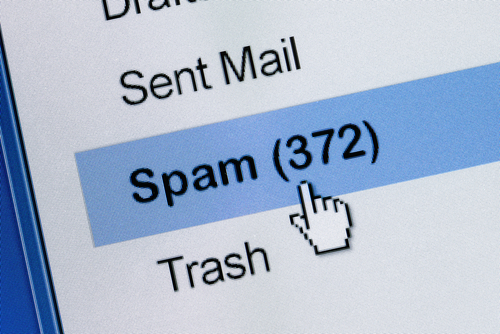Kaspersky Lab has revealed that the latest spam and phishing trends are targeting tourists and singletons looking for love online.
The warning came in its ‘Spam and Phishing in Q3 2015’ report, which also revealed a new trick spammers are using to bypass email filters and deceive recipients.
Russian Brides
In the third quarter of this year, Kaspersky Lab said that spam accounted for 54.2 percent of all email traffic – down 0.8 percent from the previous quarter.
The US (15.3 percent) is still top source of spam, with Vietnam (8.4 percent) and China (7.2 percent) rounding out the top three. The surprise here is that Russia, which was second in Q2, has now dropped down to fourth position.
 And Kaspersky said that it has noticed a new phishing email trick that has become popular in the last quarter. Spammers it seems that are now placing the text of the email as well as any fraudulent links into a PDF file, rather than in the message body, in an crafty effort to bypass spam filters.
And Kaspersky said that it has noticed a new phishing email trick that has become popular in the last quarter. Spammers it seems that are now placing the text of the email as well as any fraudulent links into a PDF file, rather than in the message body, in an crafty effort to bypass spam filters.
And the company said that the spammers were beyond exploiting the past summer holiday season in the last quarter, after it noticed fake notifications from booking services, airlines and hotels being used to spread malicious programs such as Trojan-Downloader.JS.Agent.hhy, disguised as a flight e-ticket or hotel reservation.
And lonely hearts have also been targeted, with spam email offering a selection of brides (mainly from Russia and Ukraine) to foreign suitors. When a suitor replies, they receive more spam and some brides even ask for money in order to visit the victim.
“During the third quarter of 2015 we saw spammers exploit the summer holiday season and the lonely,” said Tatyana Shcherbakova, antispam analyst at Kaspersky Lab.
“A variety of tactics were used – from sending fake notifications on behalf of hotels, to sending fraudulent links in PDF attachments, and requests for money to lonely ‘suiters’,” said Shcherbakova. “With this variety of tactics expanding, it’s vital that users protect themselves online with the latest cybersecurity tools.”
Declining Spam?
Kaspersky also pointed to the ongoing problem of malicious attachments in email messages, with the fake HTML page Trojan-Spy.HTML.Fraud.gen once again topping the rating of malicious programs sent by email. This nasty email lures the victim by pretending to be an important notification from a commercial bank, airline or online store.
Both Symantec and Proofpoint has previously said that spam levels are dropping to levels not seen since since 2012.
But Proofpoint recently noted that attacks that rely on malicious email attachments are on the rise.
What do you know about Internet security? Find out with our quiz!





